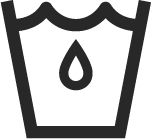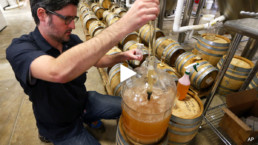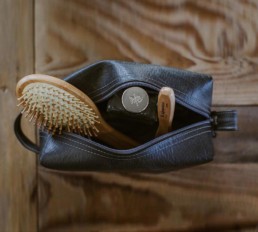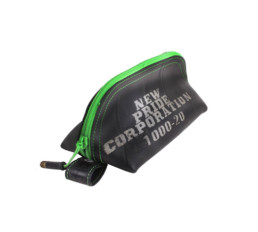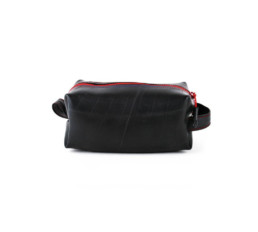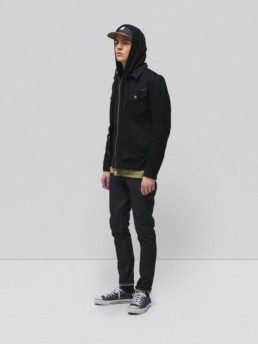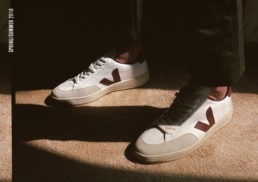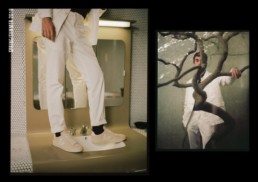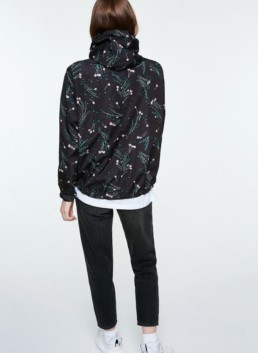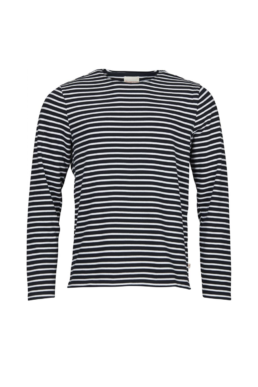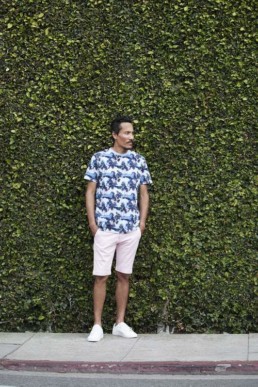February 16, 2018
These Eco-Manly Products are Here to Curb "Toxic Masculinity" and It's Negative Environmental Impact.
the idea that emasculated men try to reassert their masculinity through non-environmentally-friendly choices suggests in addition to littering, wasting water, or using too much electricity, one could harm the environment merely by making men feel feminine. listen up guys, being environmentally aware is like being the guardians of the earth and protector of life. how is that not manly?
GRAB SOME BEER FROM THESE SUSTAINABLE BREWERIES
A look to several beer brands that have published life cycle analyses, or at least environmental reports, detailing the toll their suds take in everything from growing the barley to disposing of the bottles and cans. New Belgium, for example, reports that most of its greenhouse gas emissions are related to the glass bottles it uses (37.6 percent), with distribution accounting for 11 percent. (An earlier, more detailed report also singled out refrigeration in retail stores as a major source of carbon.) Heineken tells us that most of its impact comes from packaging production and disposal (35 percent), then refrigeration (28 percent), with distribution only 10 percent. And Oregon microbrewery Migration found that 80 percent of its emissions came from brewery operations, primarily energy use.
In Chicago, for example, Argus Brewery buys wind power and is looking to add solar water heaters, and Revolution Brewing offers a beer made from hops grown at the city aquarium. Goose Island and Half-Acre have signed the Natural Resources Defense Council’s Clean Water Pledge. Nearby Michigan microbrewery Brewery Vivant gets all of its energy from renewable sources, operates out of a LEED-Silver facility, and publishes a detailed sustainability report every year. Slightly farther afield, Michigan’s Rockford Brewing Company and Ohio’s Forest City Brewery signed on to the Brewery Climate Declaration, publicly committing to greening up. (Non-Windy City denizens will find tasty options on this list from all over the country, too.)
BAGS MADE FROM RECYCLED RUBBER TIRES – ALCHEMY GOODS
They want your old tubes!
Used bike tubes are the key ingredient to our durable and stylish products. Don’t let your old flats languish in a landfill – upcycle them with Alchemy Goods. They’ll make sure your blowout gets a second chance at life in one of our bags or wallets. To date, they’ve upcycled 400,000 tubes and counting!
Want to participate? You can deliver used tubes to bike shops who upcycle with us. You can also give a nudge to your local bike shop that you think should participate. Check the maps under “Tube Upcycling Locations” for participating shops near you, or save your tubes and mail them direct to Alchemy Goods via USPS flat rate box for $5.25. Thanks for participating!
LOOK BADASS IN THIS ENVIRONMENTAL FRIENDLY OUTFIT BY NUDIE JEANS
The decision to use organically grown and harvested cotton is self-evident. If there is a method to make the land where the cotton is grown and harvested stronger and more sustainable, but also make our product more sustainable, there is no other option. They keep striving towards presenting an entire collection made from organic cotton.
Growing cotton the conventional way is a chemical intense process. These chemicals can pollute both the soil and the water. Organic cotton is grown without any artificial fertilizers, pesticides or genetically modified cotton.
A life cycle analysis comparing organic cotton with conventionally grown cotton shows that organic cotton has a 46% reduced global warming potential, 70% less acidification potential, 26% reduced eutrophication potential (soil erosion), 91% reduced blue water consumption and 62% reduced primary energy demand.Source: Textile Exchange life cycle analysis.
FAIRTRADE CERTIFIED COTTON By growing Fairtrade certified cotton, farmers receive a minimum price when selling their crop, which aims to cover the costs of sustainable production. And by selling the cotton to Fairtrade, the farmers receive a Fairtrade Premium, to invest in their communities, building schools, roads and health care facilities.
LOOKING SHARP AND BEING GOOD TO THE ENVIRONMENT IN VEJA
CO2: REDUCE, REDUCE, REDUCE
While some are planting trees and others are digging carbon sinks, the priority remains reducing CO2 emissions. In other words: change modes of transport, organization, production, packaging and consumption.
Reduce.
All Veja sneakers and accessories travel by boat from Porto Alegre – Brazil – to Le Havre. Transport is then by barge to the Parisian suburbs.
The packs of the sneakers are made of recycled and recyclable cardboard. The size of the boxes used has been optimized since the beginning of Veja in 2004.
To supply its offices with electricity, Veja no longer goes through EDF – nuclear and thermal power stations – but through the ENERCOOP cooperative.
Sustainable online marketplace,
A journey through sustainability
Klow was born on the roads, while traveling the world.
KNOWLEDGE COTTON APPAREL – ALWAYS BUY ORGANIC COTTON
In the fight against climate change, it’s easy to feel powerless in big cities where pollution and waste are an everyday problem. But these are also often the places where creatives are starting to take innovative approaches to live in a more sustainable way. They’ve been inspired in Los Angeles — with its diverse culture and landscape, it emanates a special vibe that makes it the perfect hotbed for innovation.
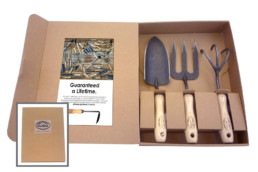
EXPLORE YOUR INNER GREEN THUMBS WITH DEWIT ECO TOOLS
As gardeners, they believe in making the world a better place and playing our part in maintaining our natural resources.
As they designed our tools, it was important for us to consider the environment and how they could build a better tool that lasted longer using renewable resources. And they did just that.
All of our DeWit tools have ash wood handles that come from Forest Stewardship Council (FSC) certified, government-controlled forests. This regulates the use of wood and the replanting of trees for a greener environment.
DeWit tools are made of the highest quality and come with a lifetime warranty. This is also important to the environment. Our tools are built to last and stand the test of time. They are more than a tool, they are an heirloom.
Please join us in being more sustainable, so they can continue to garden Mother Earth for many years to come.

LET YOUR BEARD GROW IS THE MOST SUSTAINABLE BUT TRY SHAVING WITH THIS ECO FRIENDLY WAY.
Electric shavers use almost minimal waste, except for when you need to change the blade once or twice per year — less landfill waste However, did you know, the best electric shavers for men use as little as 4 watts and a upwards of 14 watts of energy per use?
And if that didn’t grab your attention, you can also use solar powered re-chargeable batteries instead of leaving your electric shaver plugged into an outlet.
Braun is the leading manufacturer of electric shavers and their most eco-friendly line of shavers has to be, their Braun series 9. The packed so much energy efficiency into this shaver that leaves all other shavers in the dust.
BEST ELECTRIC SHAVER REVIEWS FOR MEN

To paraphrase Henry David Thoreau, “What is the use of a tent if you don’t have a decent planet to put it on?”
From a cotton cap to a super-technical storm shell, every product has an environmental and social footprint. By understanding how outdoor brands try to minimize that footprint and produce products more sustainably, you can make a more informed decision about how to invest your gear and clothing dollars.
Their article, will give you an overview of some of the most relevant sustainability topics in the outdoor industry. By considering the following sustainability issues when you shop, you can make a positive impact on the environment, human health and the well-being of animals and workers who make your outdoor gear and clothing:
-
Animal welfare
-
Fair Trade™
-
Organically grown cotton
-
Responsible chemistry
-
Recycled materials
